View all filters
Clear
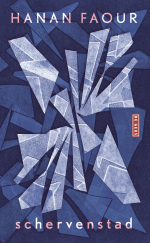
la città in frantumi
Translated from
Dutch
to
Italian
by Jessica Rostro Benigno
Written in Dutch by Hanan Faour
8 minutes read
Verboden de apen te voederen
Translated from
Spanish
to
Dutch
by Heleen Oomen
Written in Spanish by Roberto Osa
8 minutes read
De verandering
Translated from
Polish
to
Dutch
by Charlotte Pothuizen
Written in Polish by Joanna Gierak Onoszko
10 minutes read
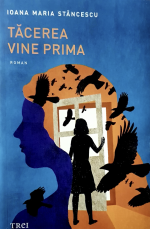
Першою приходить тиша
Translated from
Romanian
to
Ukranian
by Paulina-Ionela Onujec
Written in Romanian by Ioana Maria Stăncescu
8 minutes read
Een bom in de nacht die de bergen verlicht
Translated from
Portugese
to
Dutch
by Finne Anthonissen
Written in Portugese by Daniela Costa
8 minutes read
Jurnalul unei ultime zile
Translated from
Dutch
to
Romanian
by Cătălina Oșlobanu
Written in Dutch by Lotte Lentes
9 minutes read

O meni ne veš
Translated from
Italian
to
Slovenian
by Zarja Lampret Prešeren
Written in Italian by Raffaele Cataldo
4 minutes read
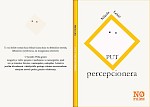
Цветове на лотос, които се затварят (когато влезеш в тях) (Пътят на перцепциониста)
Translated from
Serbian
to
Bulgarian
by Tsvetomira Mladenova
Written in Serbian by Nikola Lekić
6 minutes read
Een afhankelijkheidsverklaring
Written in Dutch by Rebekka de Wit
8 minutes read
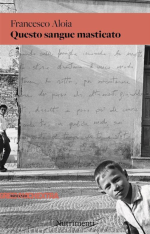
Questo sangue masticato
In his debut novel, Francesco Aloia comes to terms with the past and his family, keeping his grandmother Ada's teachings firmly in mind. After leaving home and finding his own path, he returns to the places of his childhood during a summer and confronts a particularly "overbearing" grandfather, Tanino 'e Bastimento, a man of honor who, after a couple of murders and many years in prison, after challenging a Camorra boss, now must face one final duel "in absentia"—this time with his grandson.
Written in Italian by Francesco Aloia
10 minutes read
Een gelukkig einde
Translated from
Serbian
to
Dutch
by Pavle Trkulja
Written in Serbian by Jasna Dimitrijević
10 minutes read
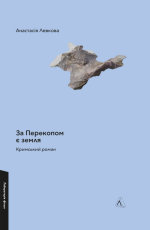
Er is nog land voorbij de Perekop
Translated from
Ukranian
to
Dutch
by Roman Nesterenco
Written in Ukranian by Anastasia Levkova
12 minutes read

Město ze střepů
Translated from
Dutch
to
Czech
by Barbora Genserová
Written in Dutch by Hanan Faour
7 minutes read
Esmeralda
Translated from
Portugese
to
Serbian
by Tamina Šop
Written in Portugese by Luis Brito
6 minutes read
Una declaración de dependencia
Translated from
Dutch
to
Spanish
by Guillermo Briz
Written in Dutch by Rebekka de Wit
9 minutes read
Sonja podiže ruku
Translated from
Romanian
to
Serbian
by Simona Popov
Written in Romanian by Lavinia Braniște
5 minutes read
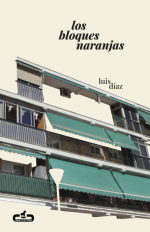
cihlové bloky
Translated from
Spanish
to
Czech
by Markéta Cubrová
Written in Spanish by Luis Díaz
7 minutes read
A ponte
Written in Portugese by João Valente
9 minutes read

De mí no sabes
Translated from
Italian
to
Spanish
by Camila Ramírez
Written in Italian by Raffaele Cataldo
5 minutes read
Volviendo a casa
Translated from
Italian
to
Spanish
by Inés Sánchez Mesonero
Written in Italian by Fabrizio Allione
9 minutes read